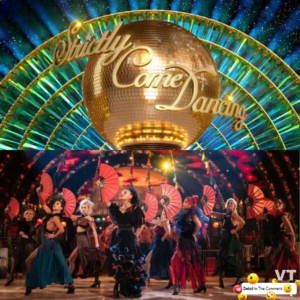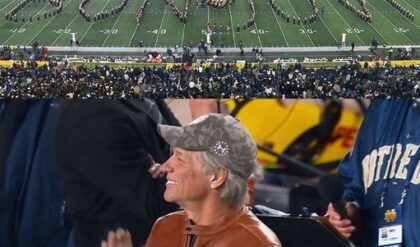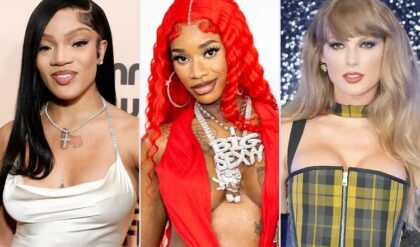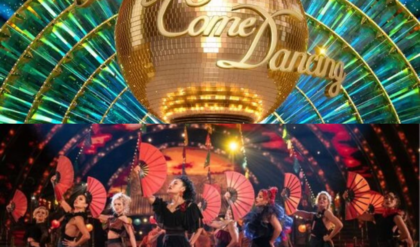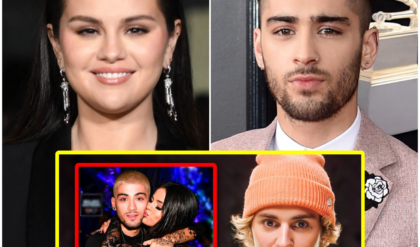Peter Andre, the Australian singer and television personality, recently found himself at the center of controversy following his performance at the Conservative Party’s annual conference,
prompting a wave of criticism. Despite being known for his pop hits like “Mysterious Girl” and his television appearances, Andre’s participation in the event drew significant backlash
from a section of the public, leading to accusations that he was endorsing or aligning himself with political views that did not resonate with his fan base. In response to the backlash,
the star has hit back at his critics, defending his right to perform at the conference while explaining the reasons behind his decision.

The controversy erupted when Andre took the stage at the Tory party conference, where he performed a selection of his well-known hits for an audience of Conservative politicians and party members.
Many fans and political commentators took to social media to voice their disapproval, accusing the singer of supporting a political party that, in their view,
represented values that were at odds with his image and the public persona he has cultivated over the years. Critics argued that his participation in the event could be interpreted as an endorsement
of the party’s policies, which many deem controversial, particularly in areas such as social welfare, healthcare, and economic inequality.

Some of the most vocal criticisms came from individuals who felt that Andre’s involvement in a political event was inappropriate for a celebrity whose music and career have traditionally been about entertainment and escapism, rather than political alignment.
The backlash intensified as social media users took to platforms like Twitter, accusing Andre of compromising his integrity for the sake of a performance fee or exposure, with some even suggesting that he was out of touch with the concerns of his fans.
The situation sparked a broader debate about whether public figures, particularly entertainers, should steer clear of politics or if they have every right to make political choices as they see fit.
In response to the growing criticism, Peter Andre took to social media and the press to defend his actions, explaining that his decision to perform at the Tory party conference was purely about providing entertainment and not a political statement.
He clarified that he was neither endorsing nor opposing the Conservative party’s views, but was simply there to perform as an artist, much like he would for any other event or audience.
Andre expressed frustration at being unfairly targeted and accused of supporting a political agenda that he has no part in.

“I’m a performer, not a politician,” Andre wrote on social media. “I’m there to do what I love, which is to sing and entertain people, regardless of their political affiliations.
I was hired to perform at a party conference just like I would be hired to sing at any other event, and that’s all there is to it.”
He also made it clear that he has a long history of working with various organizations and performing at numerous events over the years, none of which have been influenced by his personal political beliefs.
Andre further emphasized that being a public figure doesn’t mean he has to conform to any specific political ideology, and he urged people to respect his right to make choices in his career that align with his artistic passions, rather than their personal expectations of him.
He also explained that, as an entertainer, he has worked with a variety of clients over the years, including charities, corporations, and political groups, without being accused of endorsing their views.

While his response was measured and reasonable, it did little to quell the criticism, as some fans remained disappointed, feeling that a performer with such a wide-reaching platform should have considered the political implications of his appearance more carefully.
However, others came to his defense, recognizing that artists and entertainers often perform in various settings and that there is no requirement for them to engage in politics when doing so.
Andre’s participation in the Tory party conference also highlighted the larger issue of celebrity involvement in politics.
While some celebrities are deeply political and use their platforms to advocate for causes they believe in, others choose to remain apolitical or use their influence purely for entertainment purposes.
The divide in public opinion is reflective of the broader societal debate about the role of celebrities in political discourse, and whether their voices should be heard on political matters or if their primary role is simply to entertain.

In the end, Peter Andre’s performance at the Conservative Party conference and the subsequent backlash shed light on the complicated relationship between entertainers and politics.
It also raised questions about whether entertainers should be expected to take a stand or remain neutral.
While Andre has defended his decision and made it clear that he did not intend to endorse any political agenda, the public’s reaction remains divided, with some questioning whether entertainers can truly separate their professional work from political matters.
In a world where public figures are increasingly held accountable for their actions, the controversy surrounding Andre’s performance serves as a reminder that the intersection of entertainment and politics can be a delicate balance.
Ultimately, Andre’s defense underscores his right to choose his engagements freely, while also recognizing the complexity of celebrity involvement in political events.
News
Strictly Come Dancing fans explode in fury after the show accidentally exposes the next couple to be fired: “It’s all a staged drama, there’s no fairness whatsoever!”
couple, and the internet is abuzz with predictions. While elimination is always a tense and unpredictable part of any reality competition, some fans believe the writing is on the wall after seeing a series of subtle signs that suggest the…
Eamonn Holmes and girlfriend Katie feel the stares from other celebrities during their first public appearance together at a high-profile event.
Eamonn Holmes and his girlfriend Katie have made their debut as a couple at a high-profile showbiz event, and the couple’s chemistry was undeniable as they made a striking entrance together. The two, who have been inseparable since they began…
JB Gill bids a tearful farewell to pro dancer Amy Dowden as she leaves Strictly Come Dancing due to a serious injury.
During a recent episode of Strictly Come Dancing, JB Gill left fans stunned as he subtly sent a heartfelt message to his former dance partner, Amy Dowden, during his performance. The moment, which many viewers initially missed, was filled with deep…
Kelly Ripa reprimands Mark Consuelos for attempting to encourage their eldest son to become a “smoker” by “training” him to do so at a young age.
Kelly Ripa recently took to social media to scold her husband, Mark Consuelos, after he took their son, Michael, on a “playdate” to a Hooters restaurant. In a humorous yet candid post, Ripa revealed that the outing did not go…
RHOBH star Teddi Mellencamp explains why she continues to wear her wedding ring, despite filing for divorce from Edwin Arroyave: “13 years of marriage can’t end just like that.”
Teddi Mellencamp, a familiar face from The Real Housewives of Beverly Hills, has filed for divorce from her husband, Edwin Arroyave, after over a decade of marriage. The couple, who have been together since 2011 and share three children, have long…
Unbelievable! Susanna Reid turned “red-faced” as GMB spun into chaos after a guest let out a “curse word” on air.
Susanna Reid, the familiar face of Good Morning Britain, had a look on her face during her interview with Nigel Farage that was as stormy as it gets. It was a moment that viewers could only describe as “the face of…
End of content
No more pages to load
